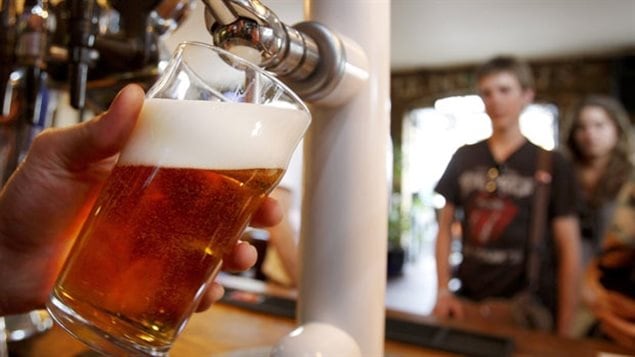Almost half of Canadian students change how much they eat before drinking alcohol and some do it for unhealthy reasons, suggests a study out of York University in Toronto. Questionnaires were sent to 3,400 undergraduates studying psychology at the university.
Of the 47 per cent who changed their eating before going out drinking, 17 per cent said they at less, perhaps even fasted for a full day, for one of two reasons. One set of students ate less to get drunk faster. The other was concerned about weight gain and ate less to compensate for the extra calories in alcoholic beverages.
‘Far more prevalent than we thought’
“This is far more prevalent than we initially thought, this idea of changing your food intake before you go out drinking,” says Kaley Roosen, the psychology PhD student who led the study. “The fact that these are two different groups of people (suggests) we really have to target our intervention programs to match the needs of these two groups of people.”
ListenThe people who curb eating to take in fewer calories are more likely to have disordered eating, she says. “They’re sort of the chronic dieters in our culture. And as our culture becomes more and more obsessed with being thin…I think that this will only increase.” Roosen notes that bars are already offering drinks that are touted as “healthy versions” of cocktails, to play to those concerns.
A need to tailor harm reduction programs
“For those women, they would need more (programs to teach them) how to develop healthy eating habits have healthy eating habits, how to love their bodies, things like that,” says Roosen.
“This other group of people who just want to get drunk faster, they really seem to be struggling with a lot more of a multitude of problems…They seem to be struggling with alcohol abuse, issues with depression. And they might need much more of a targeted program aimed at helping them regulate their mood.” The other aim is to help them avoid the increased risks associated with excessive drinking such as having unprotected sex or blacking out.
A need to ‘make sure they stay safe’
Some students ate more to try to avoid getting very drunk. Since so many students are modifying their eating when they drink, Roosen thinks harm reduction programs should address the issue head on and help students do it in a healthy way. “We know that they’re going to drink, but (we need to look at) how can we make sure they stay safe and don’t run into problems.”
Canada ranks among the top 50 nations when it comes to how much alcohol they drink. Based on per capit consumption, Canadians consume slightly less than residents of the U.S. but twice as much as Cubans.








For reasons beyond our control, and for an undetermined period of time, our comment section is now closed. However, our social networks remain open to your contributions.